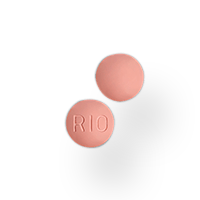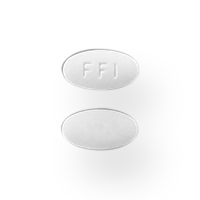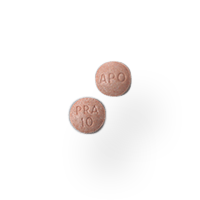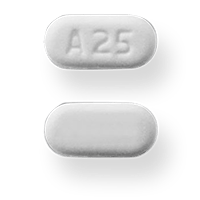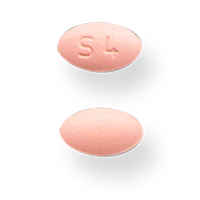According to the Center for Disease Control (CDC), 55% of adult Americans have high cholesterol and are treating it with medication. You are more likely to develop high cholesterol as you get older. This is a combination of gradual fat buildup in your arteries and a decrease in your liver’s natural ability to remove cholesterol.
High Cholesterol

High cholesterol is a medical condition where fatty deposits (also known as “cholesterol plaque”) build up around the walls of your arteries, making it hard for your blood to flow. These deposits can also lead to blood clots, which cause a heart attack or stroke.

People Affected
Risk Factors
There are a variety of risk factors for high cholesterol:
Family history and genetics
Unhealthy diet: Diets high in saturated fats, trans fats, sugar, red meat, and full-fat dairy can all increase cholesterol levels.
Obesity: A body mass index (BMI) of 30 or greater increases your risk.
Lack of exercise: Exercise helps your body better process cholesterol. So, a lack of exercise leads to higher cholesterol levels.
Smoking: Smoking damages your blood vessels, which makes them more likely to collect fatty deposits.
Diabetes: The high blood sugar levels associated with diabetes often contributes to higher cholesterol levels as well, in addition to damaging your blood vessels.
Signs & Symptoms
There are no symptoms for high cholesterol.
Pharmacist Tip
Statins can be taken with or without food, but Lovastatin and Simvastatin should be taken at night, while Rosuvastatin and Atorvastatin can be taken day or night. Try to take your medication at the same time each day and maintain all of your regular doctor appointments. It is important to keep open communication with your doctor and pharmacist regarding your overall treatment plan.
When discussing cholesterol, you will hear two terms: LDL (low-density lipoprotein cholesterol) and HDL (high-density lipoprotein cholesterol). LDL is also called "bad" cholesterol and HDL is called "good" cholesterol. The goal is to have high HDL but low LDL.
You may also want to refrain from consuming grapefruit, as it can result in higher concentrations of the statin medication in the body when taken together. This may lead to an overall increase in muscle pain and can cause discomfort. Discuss this with your doctor or pharmacist in the event you experience any of these effects.
Medical Experts
Primary Care Doctor: Your general doctor can diagnose and treat high cholesterol.
Cardiologist: Cardiologists are doctors who specialize in treating medical conditions that affect the heart and blood vessels. Your primary care doctor may refer you to a cardiologist if your high cholesterol is particularly complex or difficult to control.
Diagnosis
Since there are no symptoms, it is vital that you get your cholesterol frequently tested. Only a blood test can detect high cholesterol.
Prescription Treatment
The most commonly prescribed families of high cholesterol drugs are:
Statins: atorvastatin (Lipitor), fluvastatin (Lescol XL), lovastatin (Altoprev), pitavastatin (Livalo), pravastatin (Pravachol), rosuvastatin (Crestor), and simvastatin (Zocor)
Bile-acid-binding resins: colesevelam (Welchol) and colestipol (Colestid)
Cholesterol absorption inhibitors: ezetimibe (Zetia)
Combinations of Statin and Cholesterol absorption inhibitor: ezetimibe/simvastatin (Vytorin)
Niacin: Niacor or Niaspan
Fibrates: gemfibrozil (Lopid) and fenofibrate (Antara or Lipofen)
Omega-3-Fatty Acids: prescription Lovaza or Vascepa
Not all generics are the same. Different people respond better to different versions of the same drug, depending on the manufacturer. You can search our website to find the best fit for you.
Lifestyle Remedies
There are many lifestyle choices you can make to help prevent or reduce high cholesterol:
Exercise most days of the week.
Monitor your weight or lose weight if suggested by your doctor.
Change your diet to help lower the bad cholesterol. Refrain from salt, fat, red meat, and full-fat dairy products and instead focus on eating a healthy amount of vegetables and whole grains.
Limit any alcohol consumption to moderate use.
Refrain from smoking.
Manage
